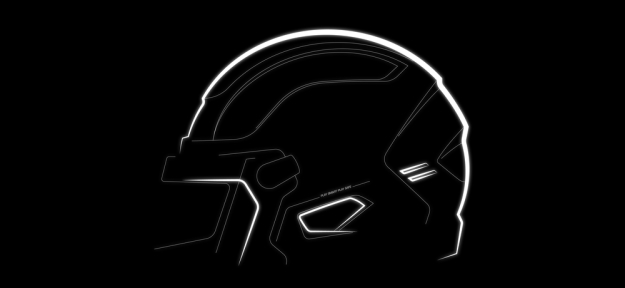
Montreal-based consortium among finalists developing NFL’s next-gen helmet
By Barry Wilner, The Associated Press
General MedicalKollide prototype one of four projects awarded by NFL Helmet Challenge.

(Photo credit: Kollide.ca)
As part of the NFL Helmet Challenge, a contest with an additional prize of $1 million, receiving grants will be Impressio Inc. and CU Denver; Xenith Project Orbit; Kollide; and the University of Virginia.
Sponsored by the league and Football Research Inc., the Helmet Challenge aims to stimulate the development by experts, innovators and helmet manufacturers of a new helmet that based on laboratory testing outperforms all helmets currently worn by NFL players.
The challenge ends in July 2021 with applicants submitting helmet prototypes for testing sponsored by the NFL-NFLPA that ranks helmets for performance and safety.
“There has been a dramatic increase in the rate of innovation in safety equipment in the last five to 10 years,” said Dr. Barry Myers, director of innovation at Duke University’s Clinical and Translational Science Institute, who is chairman of the independent Oversight Committee that selected the winners. “Manufacturers are bringing out new models that outperform prior models almost every year. It is amazing. That wasn’t the case 10 or 20 years ago, when new models were released slowly.”
The awardees:
Eric Wagnac and Franck LeNaveaux, Kollide, Montreal, $238,545.
This consortium combines the expertise of academic researchers and four Montreal-based companies (Kupol, Tactix, ShapeShift3D, Numalogics) to use their virtual design and 3D printing approach to create helmets customized to the player’s head, with a custom liner optimized to absorb and redirect impact.
Christopher Yakacki , Impressio Inc. and CU Denver, $491,999.
Yakacki’s group is looking to create unprecedented energy-dissipating helmet liners. This project is supported by partners including EOS, nTopology and Schutt helmet manufacturer.
Xenith Project Orbit, Detroit, $412,000.
Xenith, which manufactures football equipment, seeks to bring together experts in a variety of fields to create a new solution for energy management and a best-in-class on-field experience for the athlete. It’s supported by partners including Rheon Labs, the University of Waterloo and BASF.
Dr. Matthew Panzer, Topologica Inc., $223,047.
Panzer and collaborators seek to use their foam meta-material to design a new energy absorbing layer in a football helmet that will minimize risk of concussion.
“I look at it as we are trying to take new technology and science and develop a whole new product,” Yakacki said. “It is more than a hobby; you can’t do this in your spare time. If you are going to make helmets safer, solve the concussion problem, you need time and resources and people.
“This kind of help makes it worth it. It helps attract talent and allows them to do the work.”
The NFL’s HeadHealthTECH Challenge grant funding is one of several resources being applied to improve helmets. It includes the league’s Engineering Roadmap, a $60 million effort into enhancing understanding of the biomechanics of head injuries in professional football. One of its initiatives is to create incentives for helmet manufacturers, small businesses, entrepreneurs, universities and others to develop and commercialize new and improved protective equipment, including helmets.
“I believe the Engineering Roadmap and the stimulus it provides to innovators” should be credited with the upgrades, Myers said. “A lot of people want to see athletes protected and able to do their sport and succeed, and now with a lot of people paying attention and a lot of new industries coming to work on this problem, I think we are at the precipice of even more innovation.”
www.kollide.ca
